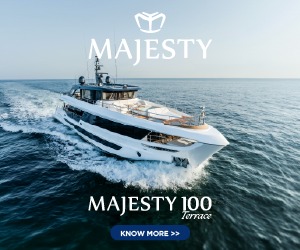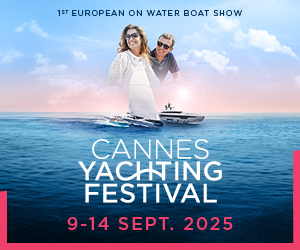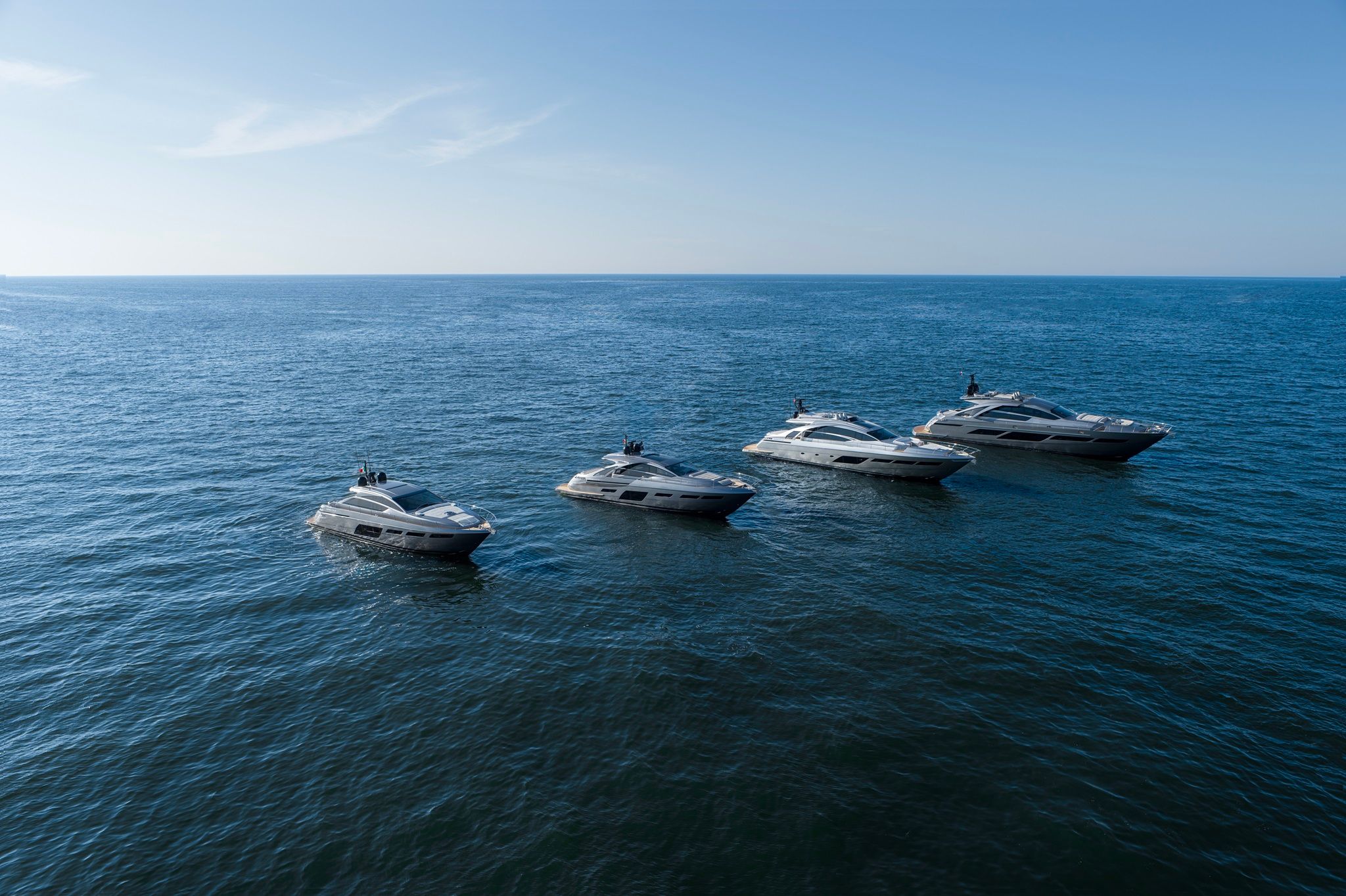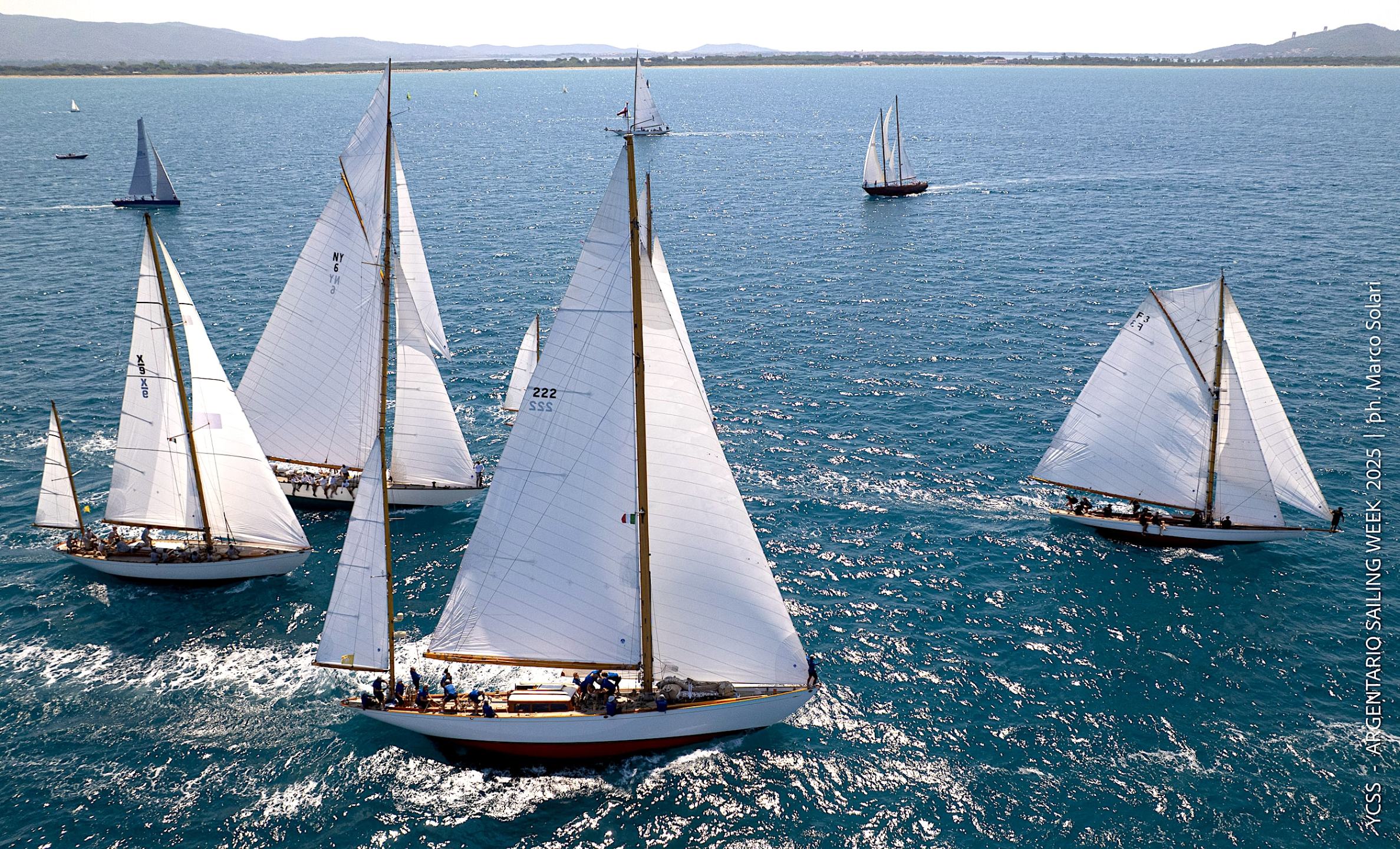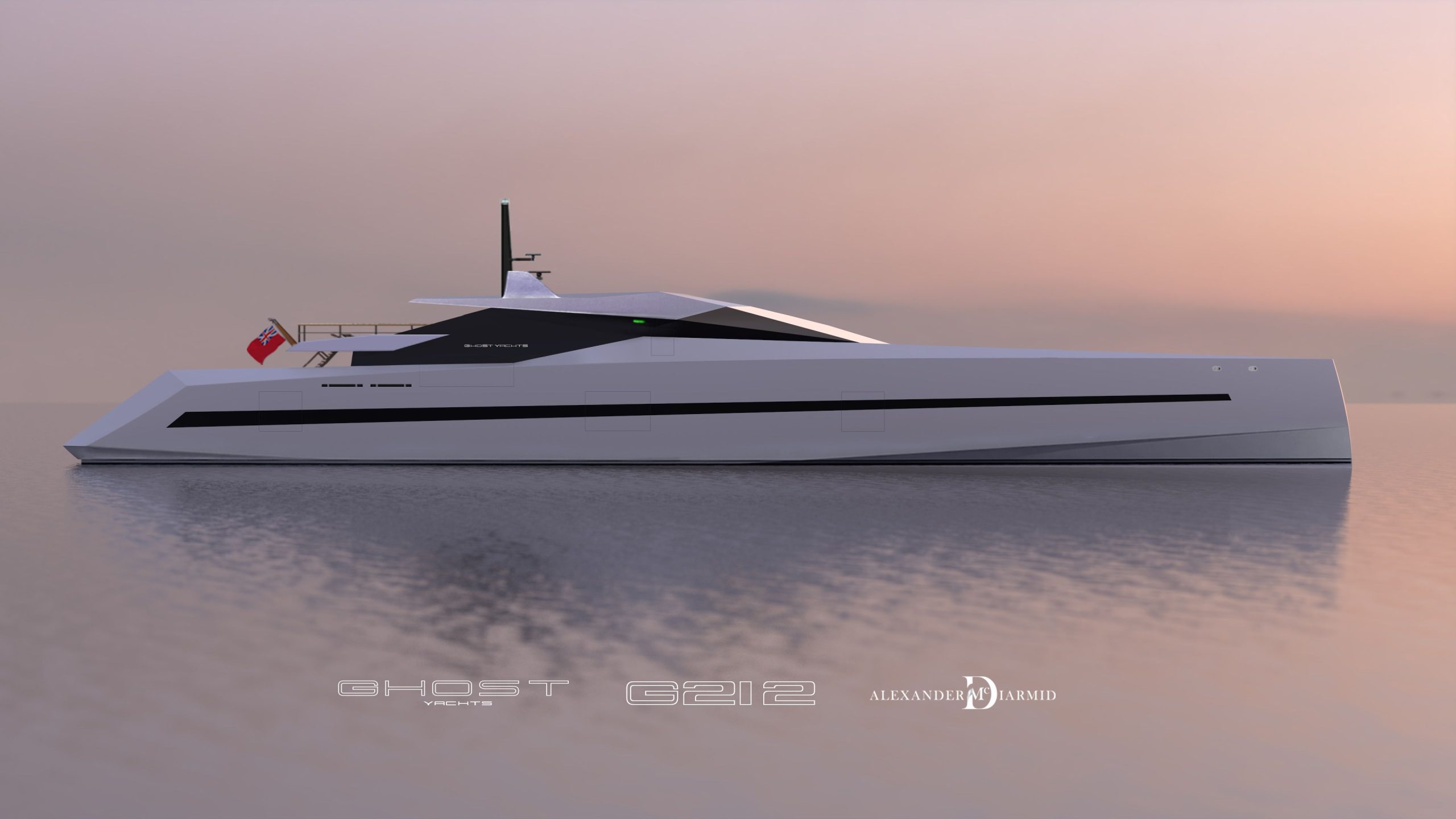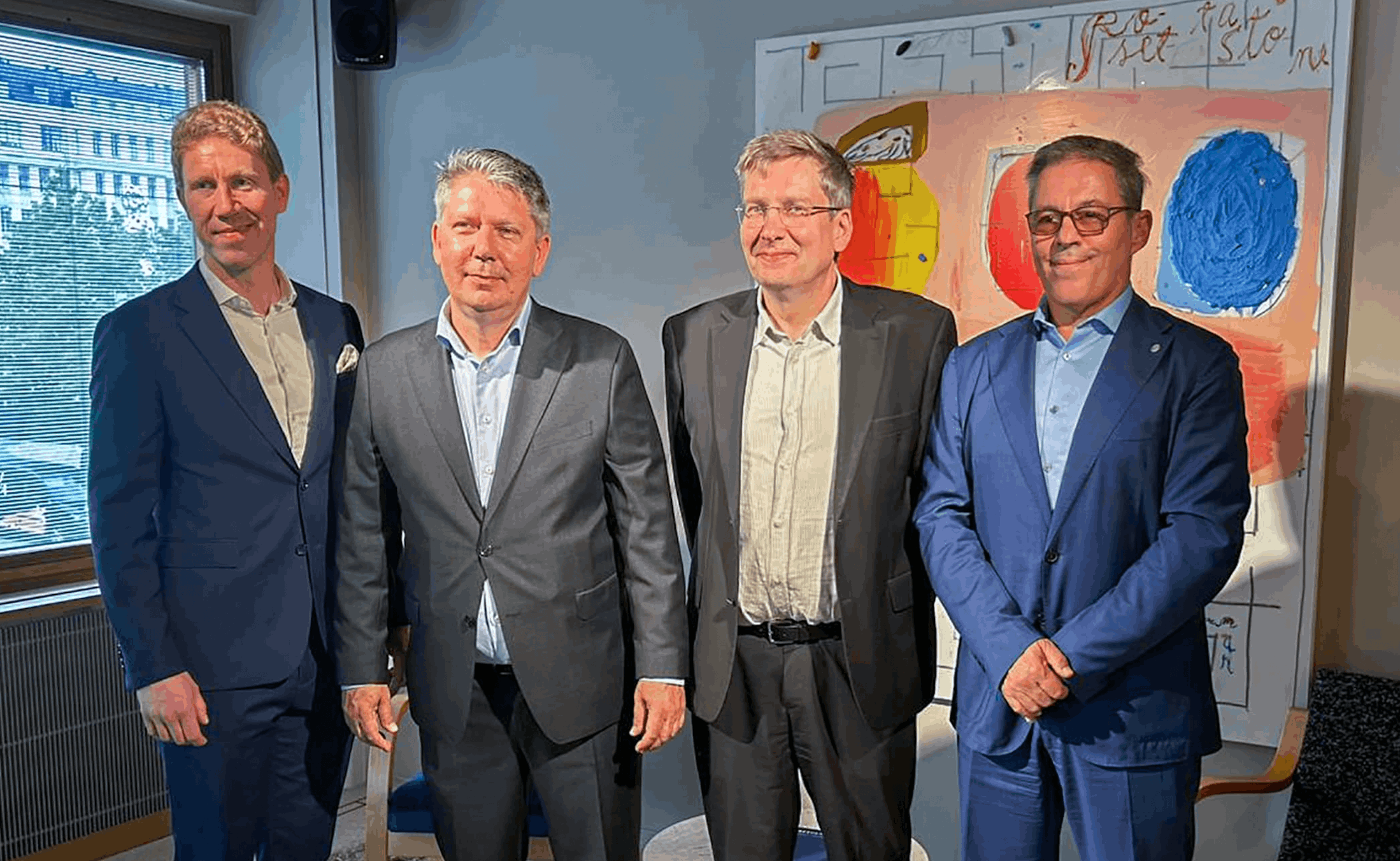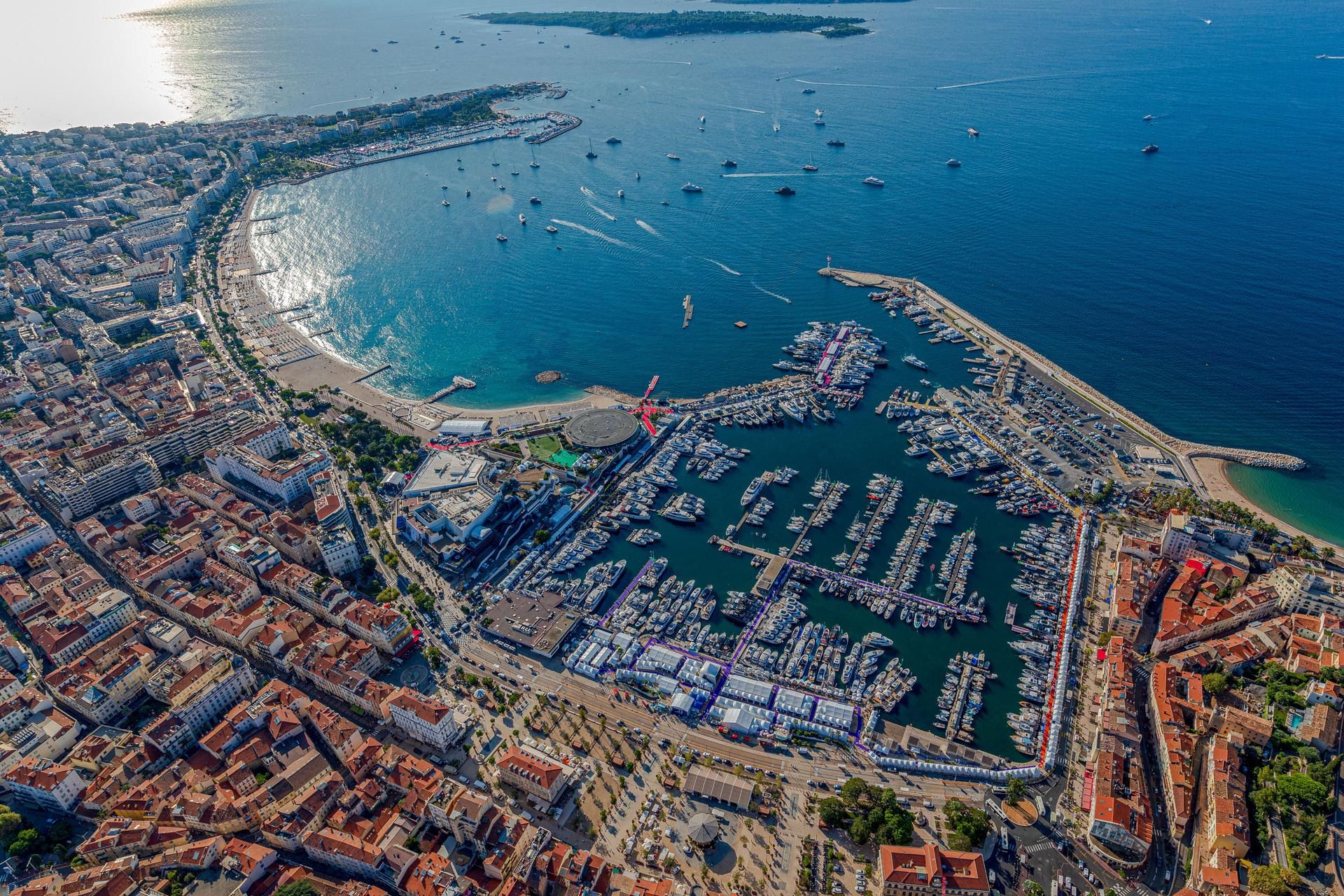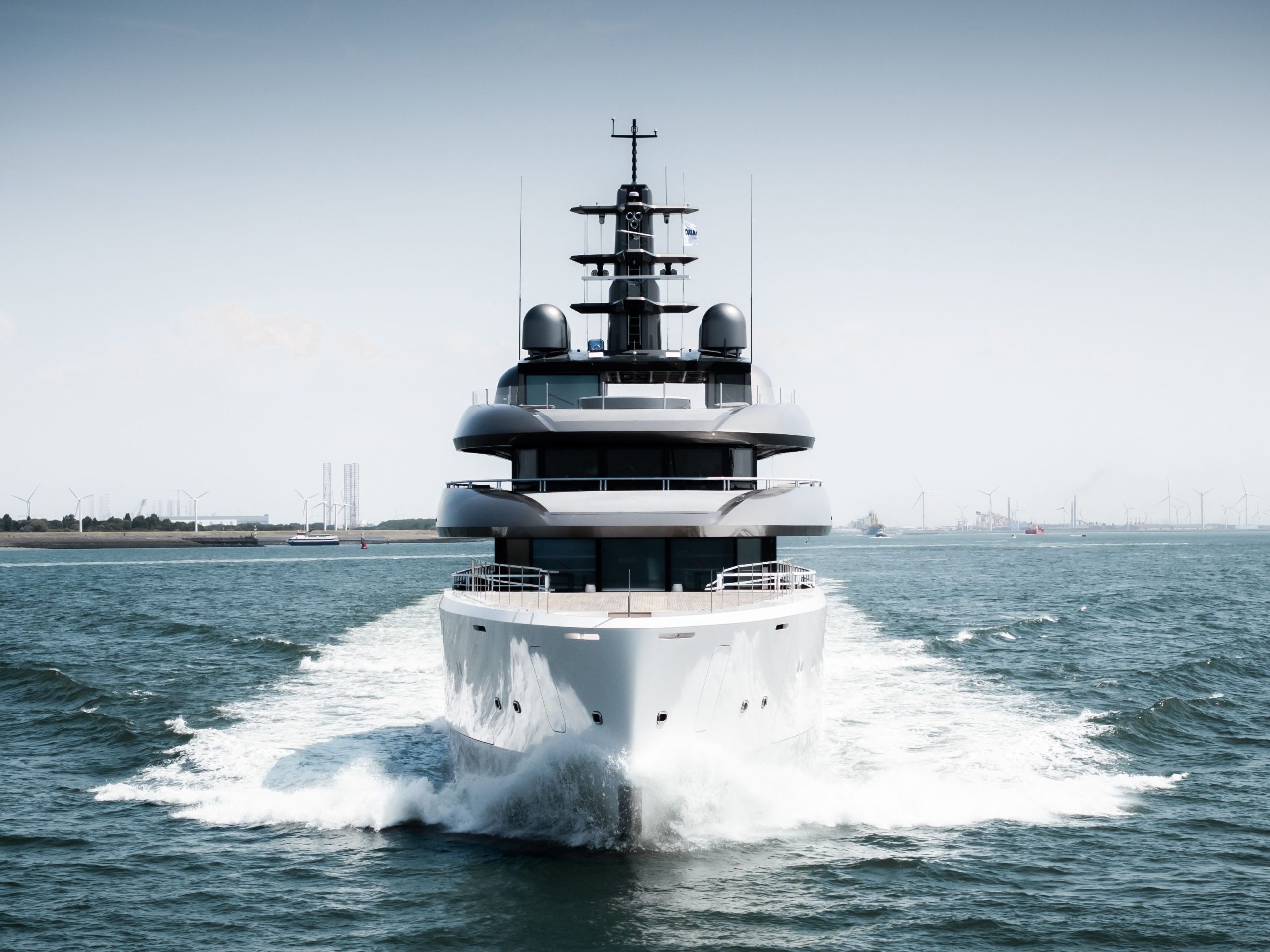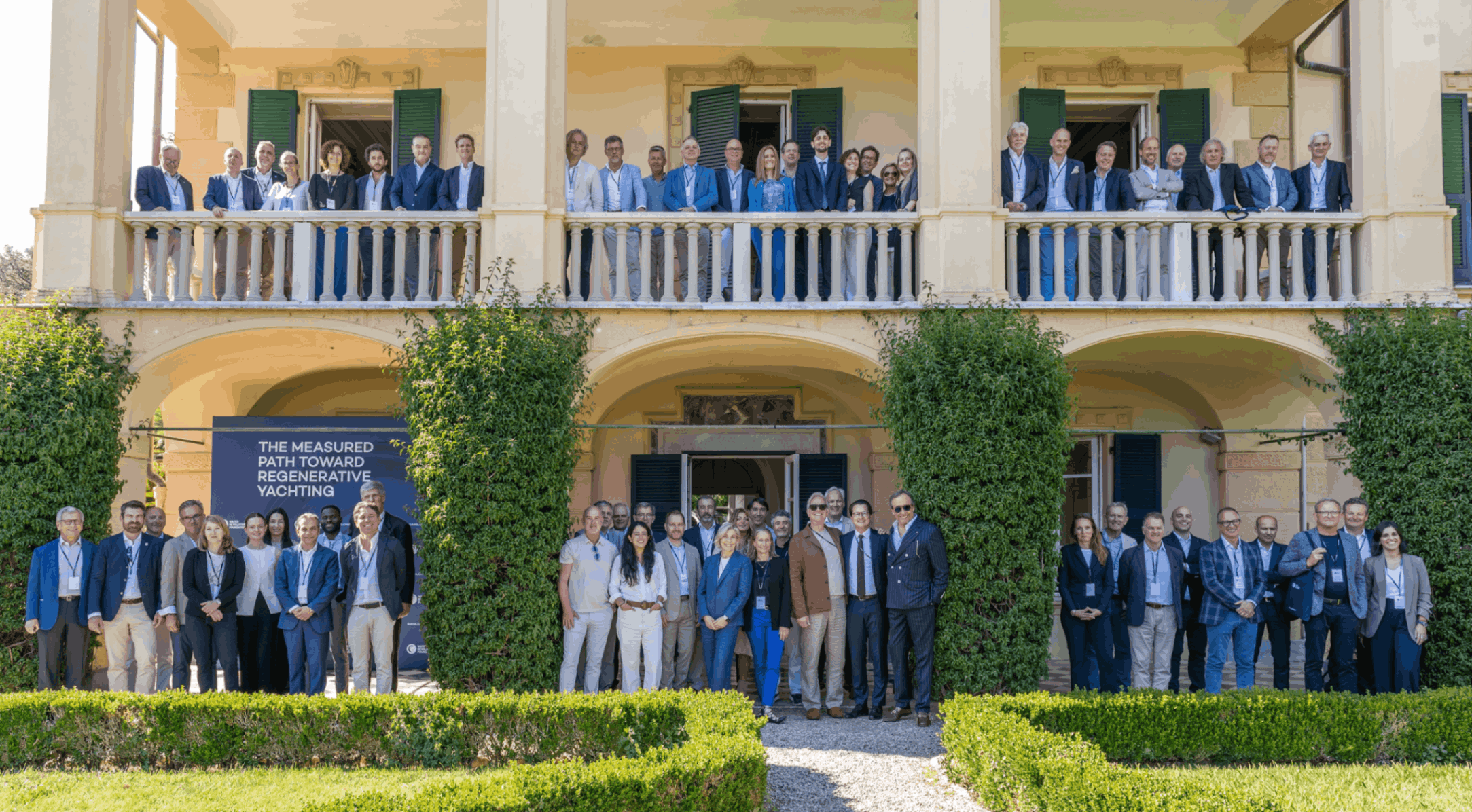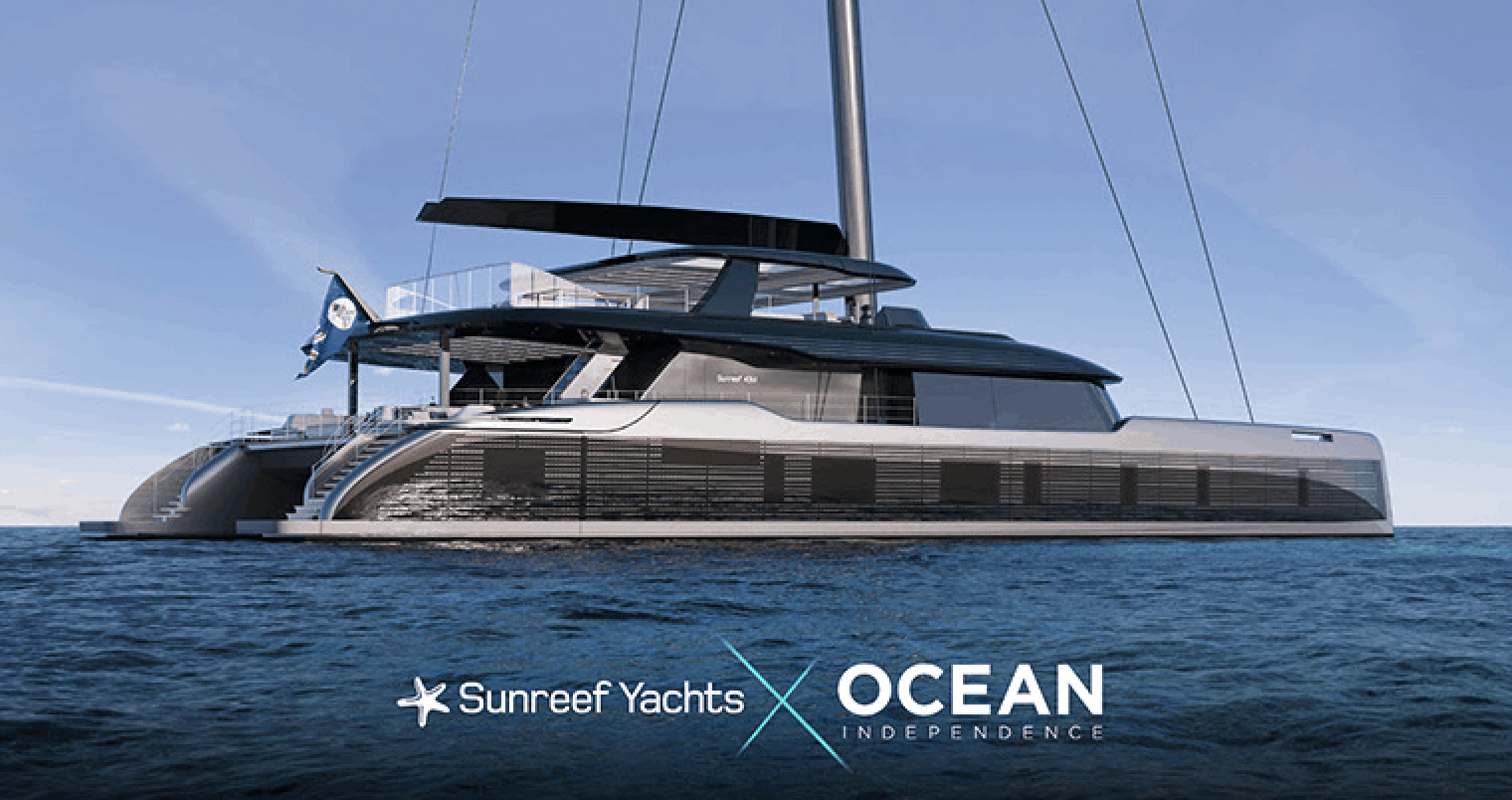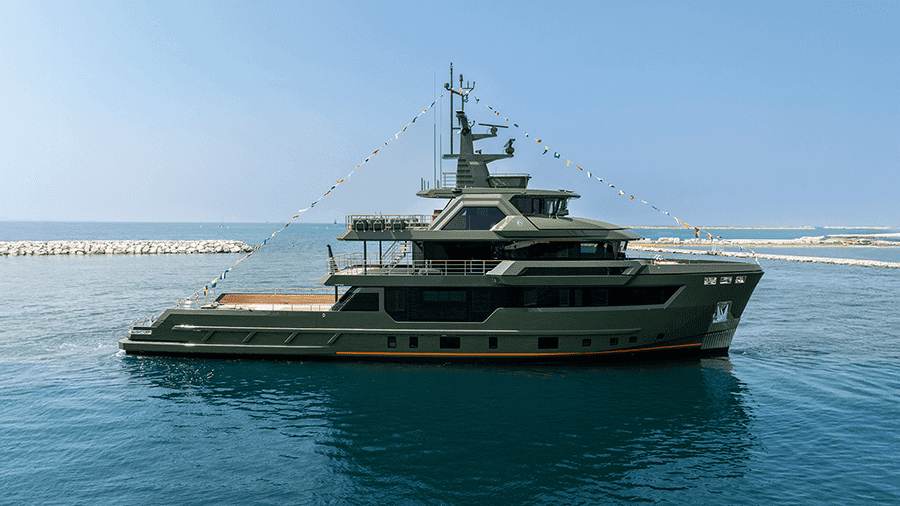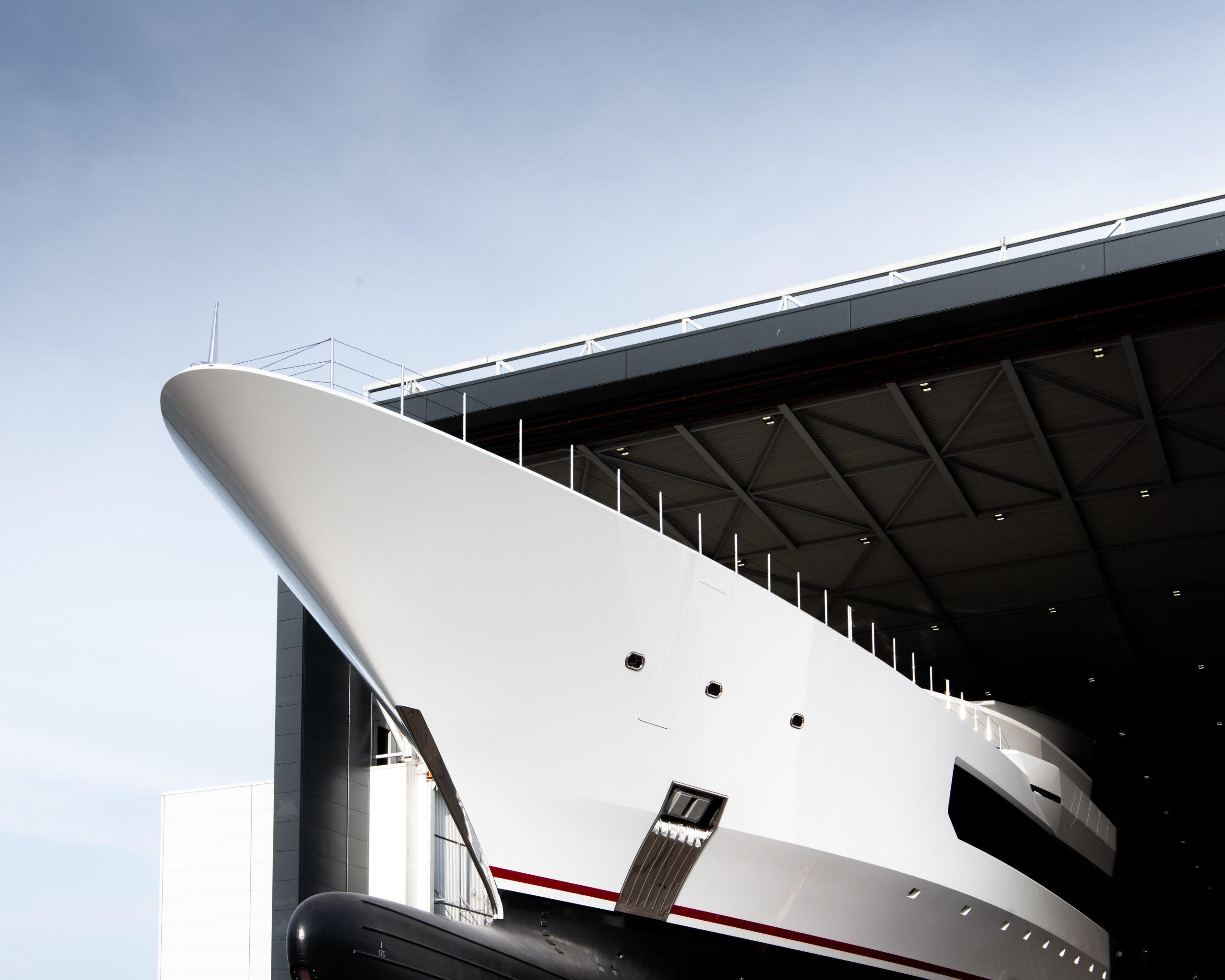First of its kind hybrid-electric vessel enters operation for Svalbard tours

The vessel Kvitbjørn (translation: Polar Bear), which was first announced in November 2021, is powered by a complete helm-to-propeller Volvo Penta twin D4-320 DPI Aquamatic hybrid-electric solution. It is the result of collaboration partners Volvo Penta, Marell Boats, and Hurtigruten Svalbard who have established this three-year pilot project to test new electromobility technology in one of the world’s most extreme maritime environments. With a top speed of 30 knots, a cruising speed of 24 knots, and a range of 500 Nm it’s an impressive vessel.
“We are so excited to see this vessel go into operation,” says Johan Inden, President of the Volvo Penta Marine Business Unit. “We see electromobility as an enabler for many marine commercial operations – that have short, dedicated journeys – as our industry strives towards a zero CO2 emissions future. The Kvitbjørn operation fits our expected electromobility user case and we’re excited to learn how we can accelerate the journey toward sustainability, together.”
Today, the new vessel set off on its maiden commercial voyage from Longyearbyen, Svalbard – the world’s northernmost town, just 800 miles from the North Pole. The tourists on board are among the first in the world to experience the Arctic with this level of quiet cruising under electric power.
“We have been eager to test drive Kvitbjørn since its arrival to Svalbard in April,” says Tore Hoem, Adventures Director at Hurtigruten Svalbard. “The difference from a traditional boat is the feeling of silence. In electric mode, you can hear the sound of the glacier ice in the water, the breath of walruses – it will allow us to offer a truly unique experience to our customers. Enabling the optimal mix of low-speed, silent cruising, and the ability to cover a lot of distance for the 3–4-hour duration of the tour. We look forward to the experience of driving it – and expect our guests will be just as excited by the silent experience on board.”
The state-of-the-art vessel, a Marell M15, is set to change how tourists experience the natural wonders of Svalbard and its breathtaking seascapes, landscapes, and unique natural wildlife – which includes polar bears, puffins, seals, walrus, and a variety of whales.
Revolutionizing electromobility at sea Volvo Penta is known for its integrated systems approach from helm to propeller – the propulsion system, including engine and driveline, the Electronic Vessel Control System (EVC), Joystick control, Dynamic Positioning System, and the driver interface. This full systems approach is a key advantage in electromobility transformation – the benefits of which are evident in the Kvitbjørn.
The integrated system, with a uniquely developed Human Machine Interface (HMI), sets this vessel apart from competitors by allowing the operator to seamlessly shift between driving modes enhancing efficiency and comfort on board. It also allows Volvo Penta the ability to offer ease of installation and one point of contact for aftermarket support, as well as enabling Volvo Penta experts to monitor and learn from vessels in real-time – which is the key to exploring new business models.
This will be Hurtigruten Svalbard’s first hybrid day tour vessel and the first of its kind in Svalbard – and in another first – the companies will be testing a ground-breaking new business model, based on a power-by-the-hour payment program.
Hurtigruten Svalbard will trial paying by the kilowatt-hour for the vessel’s operation. This pioneering e-mobility-as-a-service model, while still at a concept stage, could revolutionize how customers purchase and use marine e-mobility solutions, particularly as upfront costs can be higher. This is a way of risk-sharing between Volvo Penta and the end-user and could offer great benefits to early adopters.
The power of collaboration Both Hurtigruten and Volvo Penta are amid sustainable transformations that are paving the way in their respective industries. Boatbuilder Marell Boats is also an industry-recognized pioneer in innovative design. All three companies understand the importance of collaboration when it comes to advancing sustainable solutions at sea.
“The integration of the Volvo Penta system into the Marell hull has run very smoothly,” says Gerard Törneman, Key Account Manager for commercial vessels at Marell Boats. “We collaborated from the beginning to identify the ideal boat design for the ultimate operation and sightseeing experience. Marell’s and Volvo Penta’s technicians have worked well together regarding the design and installation of important supporting systems for the arctic climate, like heating, ventilation, and charging system. This kind of collaboration is essential with hybrid and electric solutions to ensure the technology is an ideal fit for the intended use case.”
Innovation to drive sustainability These companies have a desire to be at the forefront when it comes to new technology. They have a shared understanding that sustainability ambitions – in their industries and society in general – can only be achieved through innovation. All three companies are innovators in their fields and focused on delivering a once-in-lifetime moment for the guests onboard.
“We must undertake pilot programs like this collaboration with Hurtigruten Svalbard and Marell Boats,” says Johan Inden. “We’re looking at the bigger picture here, it’s not just about testing a hybrid propulsion system, it’s about looking at how we can adapt our unique features – the DPS and joystick for instance – for hybrid and electric use. Testing our solutions in this extreme environment and trialing new business models will enable us to continue to innovate and explore – all with the aim to deliver an unrivaled experience on the water – in this case, helping to enable the ultimate adventure at sea.”
Turning words into actions “We can trust that science and technology will continually improve and create opportunities for advancing sustainability measures, but we cannot wait for this to happen,” says Henrik Lund, Managing Director of Hurtigruten Foundation. “We must act now and continue to test emerging solutions, so we can advance. We are proud to be working together with Volvo Penta and Marell Boats to expand the horizons of electromobility at sea.”












